Farmers 'left in limbo' as they await new nature scheme
Jack Kelly has spent much of the last decade bringing the barn owl back to his farm
- Published
Farmers say they have been left "in limbo land" as they wait for the full introduction of a scheme that will support nature on their farms.
The Farming with Nature (FWN) scheme is set to replace the Environmental Farming Scheme.
But only a limited transitional scheme focussing on habitat restoration has opened so far, which has left farmers like Jack Kelly, who has been helping to bring barn owls back to his farm, waiting for certainty about what happens next.
"The public want to see a farmer producing good food," Mr Kelly said.
"But they also want to see a farmer doing a bit for the wildlife if possible."
Three barn owl chicks
Mr Kelly has spent much of the last decade bringing the barn owl back to his 90-acre farm in Ballyalton, County Down.
There are fewer than 30 breeding pairs of barn owls across Northern Ireland, largely due to a loss of habitat which has affected their food supply.
Mr Kelly used EFS funding to provide nesting boxes and create habitat for the red-listed species.
For the last three years, the birds that nest on his farm have produced three chicks every year.
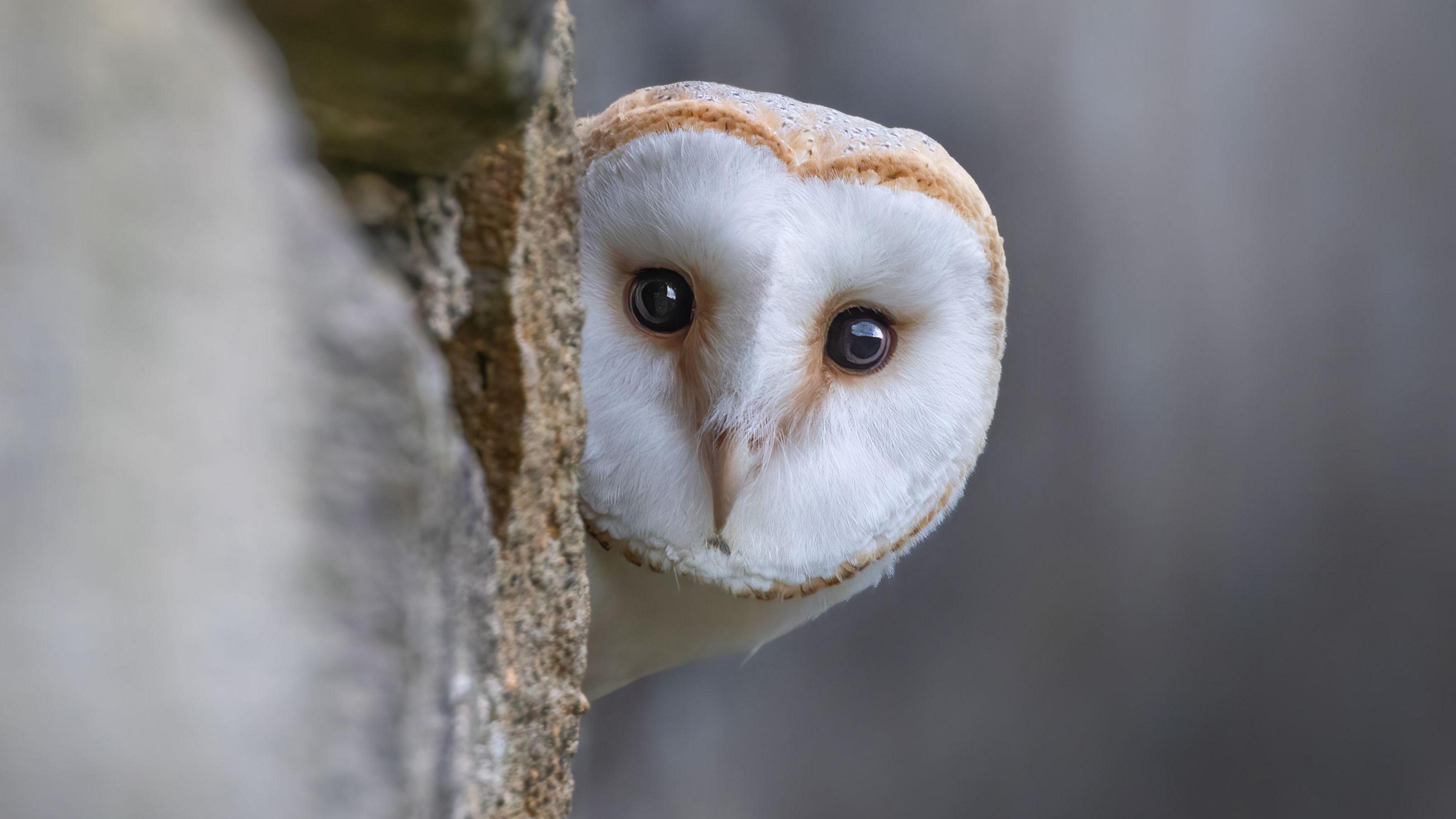
There are fewer than 30 breeding pairs of barn owls across Northern Ireland, largely due to a loss of habitat which has affected their food supply - stock image
"I love what I'm doing - it started away back in the 90s when I'd done tractor work and saw birds and wondered what could I do for them," he said.
"Then I was told these schemes were coming in, so that encouraged me."
He worked with Ulster Wildlife and RSBP NI to get things right for barn owls on his farm.
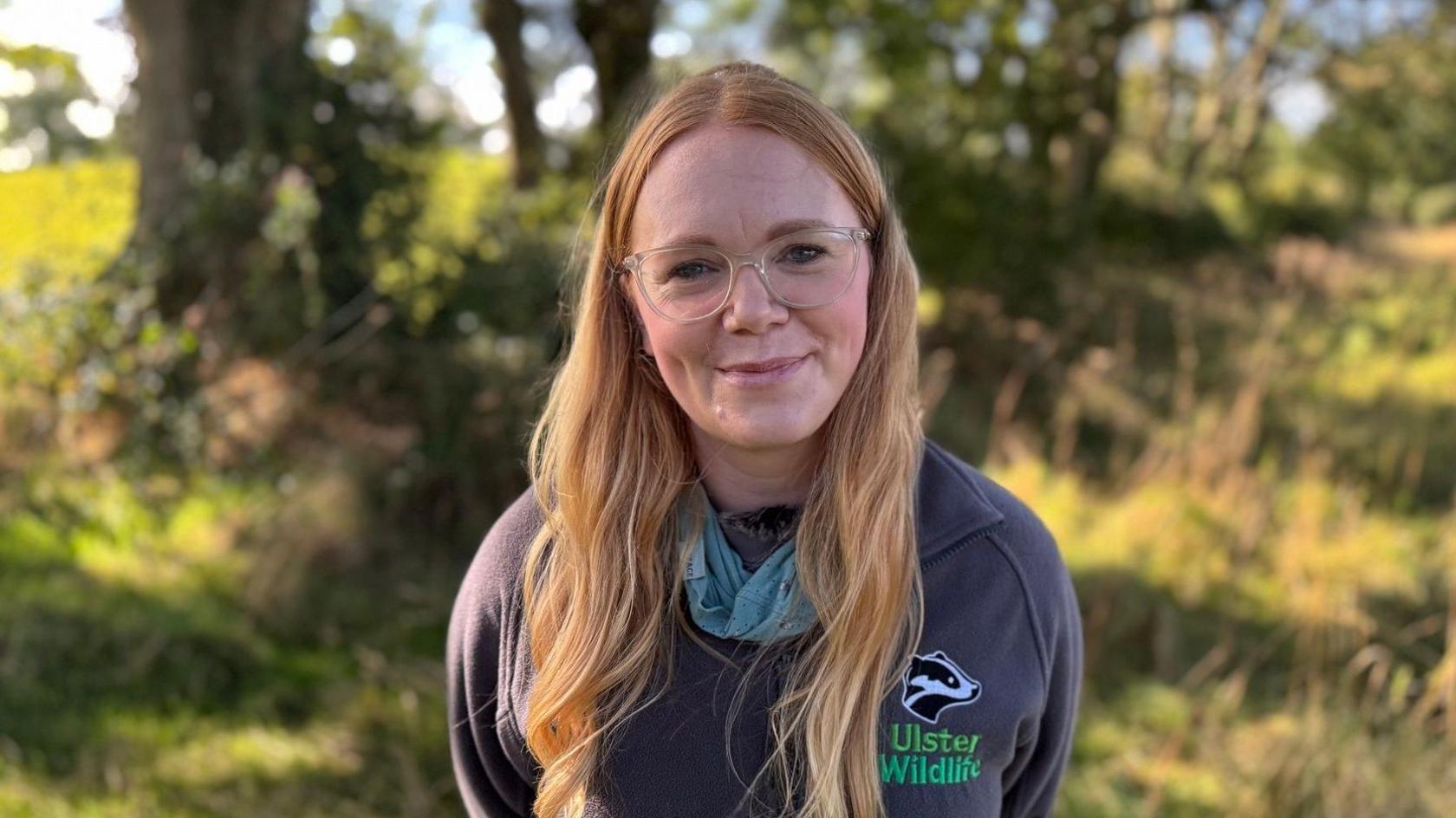
Katy Bell says the work of farmers like Jack Kelly is amazing
Katy Bell, senior conservationist for Ulster Wildlife, said the results had been "amazing".
"We need more farmers doing things like this for wildlife, but we also need agri-environment schemes that support that," she said.
During the first five-year scheme, as well as putting up nesting boxes, Mr Kelly created a patch of rough grass to encourage the rodents that barn owls like to hunt, hoping to attract more birds.
He had hoped the rough grass margin would attract more funding in the second round of the scheme.
But he was told he would have to plough it up to be eligible or plant a new area which would reduce his productive land.
"We're a small farm, we're trying to get our crops as well, but we've just forgone the payment for this and let it stay because it's so beneficial to barn owls and other wildlife," he said
That means he's now out of pocket.
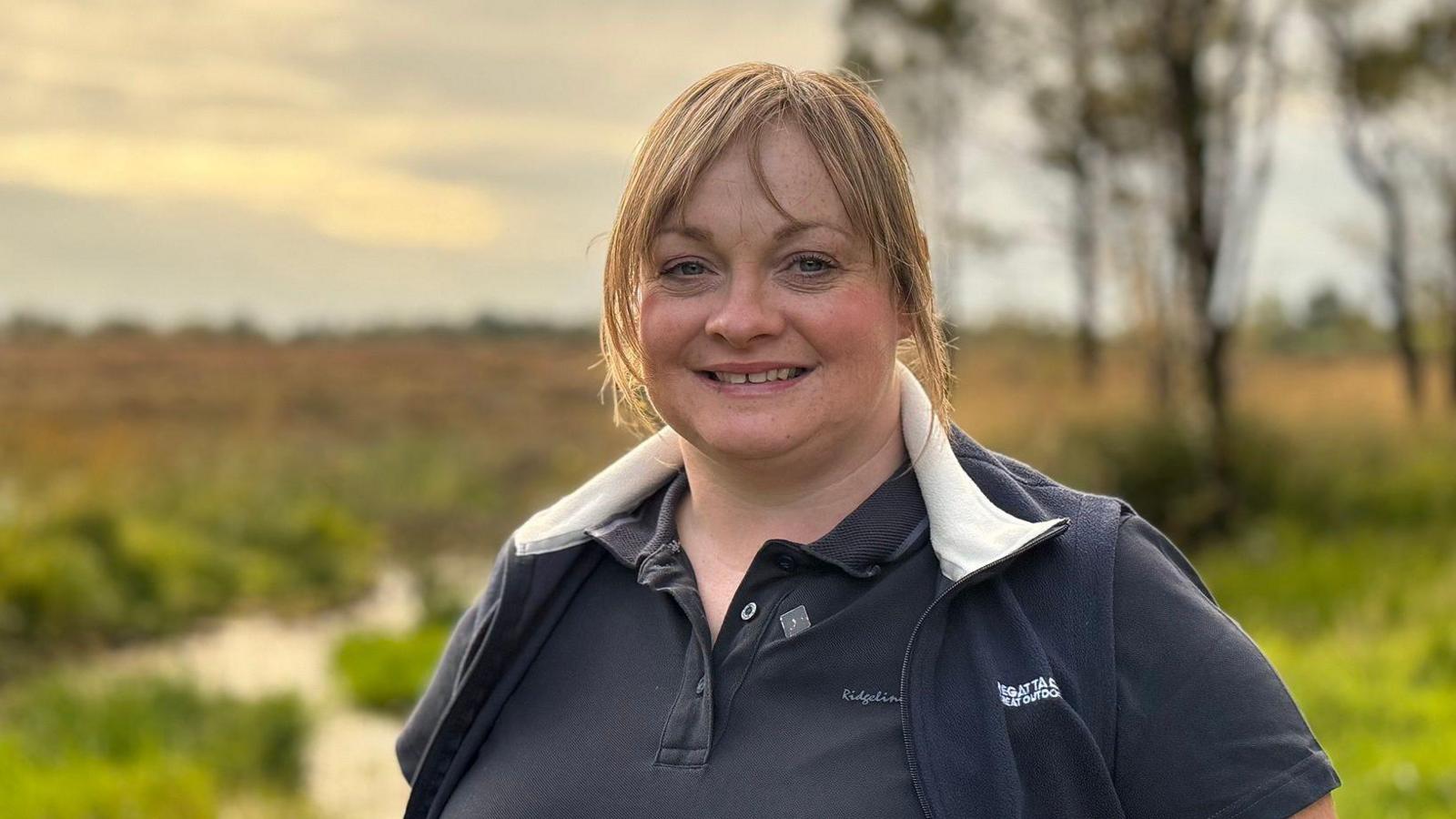
Samantha McCaroll used EFS funding to help restore a peatland which had been a favourite childhood haunt
The Department of Agriculture, Environment and Rural Affairs (Daera) said future phases of the FwN programme are planned to launch from mid-2026.
Ms Bell said the "gap" between the previous EFS and the new Farming with Nature scheme is a "problem for farmers".
"We need a scheme that's fit for purpose and we need farmers to be supported because there's a lot of farmers out there willing to do things for nature."
'A great incentive for farmers'
In County Tyrone, Samantha McCarroll used EFS funding to help restore a peatland which had been a favourite childhood haunt.
It is part of Cranny Bogs near Fintona and had been damaged by fire in recent years.
The funding allowed her to rewet the peat and raise the water table by blocking old drains.
"We couldn't have done it without the money, as much as I would have liked to have done it anyway," she said.
"It's a great incentive for farmers, we always want to improve the environment but it's not always affordable for us to do as much as we would like to do."
It also enabled her to install fencing to protect waterways which has helped increase biodiversity on the farm, bringing birds and insects to the fields.
But with increasing pressures from climate change, and growing concern about incoming changes to inheritance tax relief for farmers, Ms McCarroll says it is "difficult" to keep things going.
"It would be great to see an incentive like the Environmental Farming Scheme reintroduced," she said.
"The biggest problem at the minute is we don't know; we can't do anything until we know what is in front of us.
"So we just feel like we're in limbo land at the minute."
Hundreds of farmers have written to Agriculture Minister Andrew Muir and assembly members calling for clarity about what is coming next and when.
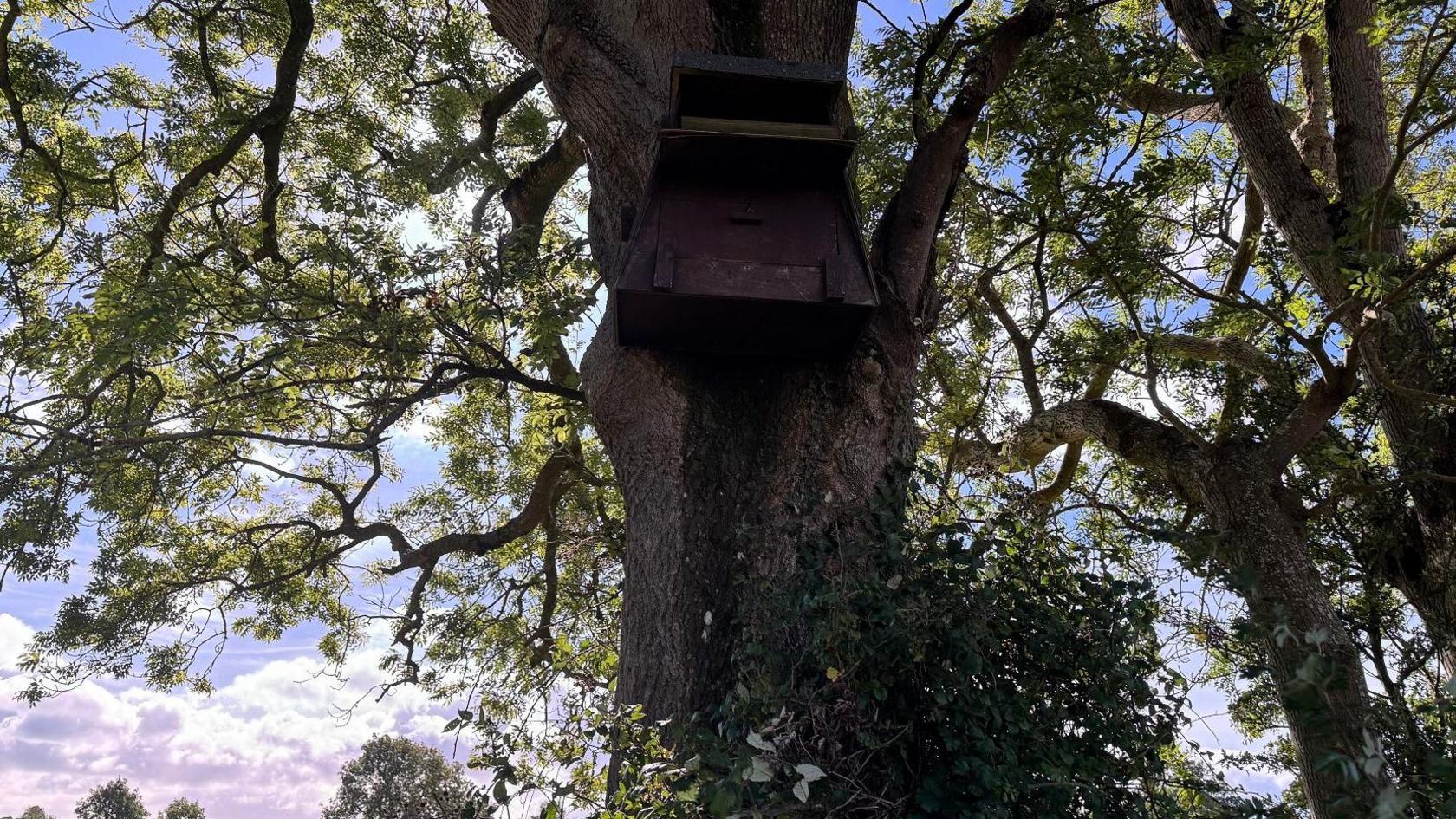
A nesting box for barn owls on Jack Kelly's farm
As a conservation manager with RSPB NI, Sean Woods has worked with hundreds of farmers throughout the EFS and its predecessor, the Countryside Management Scheme.
He is concerned that "history could be repeating itself" and "disgruntlement" is building among farmers who have changed their business models to work with nature.
"I think it was a three-year gap between those schemes and we had an 80% drop-off of farmers uptaking agri-environment schemes from then," Mr Woods said.
"Some farmers aren't getting a single penny for the work they're doing, so we need more co-creation and more involvement."
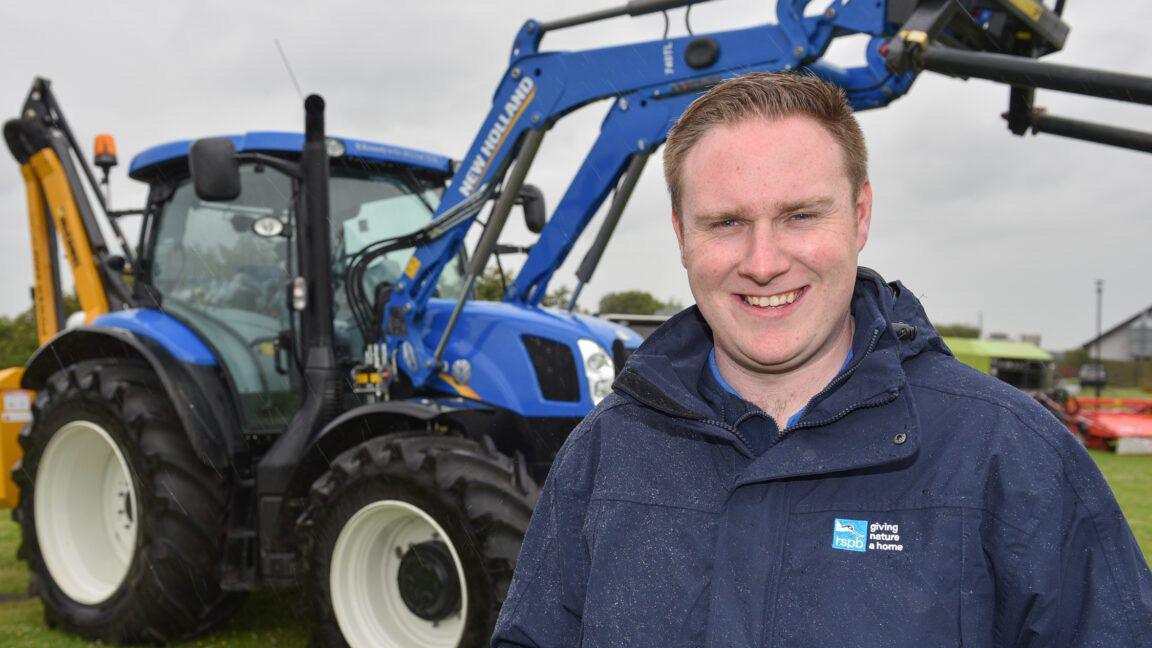
Sean Woods is concerned that "disgruntlement" is building among farmers who have changed their business models to work with nature.
He says out of the areas of the UK, Northern Ireland already has the lowest uptake for this kind of support at less than 5% compared to about 20% in England and Scotland and almost 30% in Wales.
"We need to be encouraging more into the schemes, but we need fit-for-purpose schemes," he said.
"And I think we're going to have another drop-off is we don't get that in the future."
Daera said farm businesses with approved Farming with Nature Transition Scheme applications can begin work to implement environmental actions and supporting items.
"Work must be completed before claims for payment are made. Claims can be submitted online between 2 and 31 March 2026. It is planned that payments will commence in June 2026. Scheme participants are reminded to retain invoices for materials and/or services."